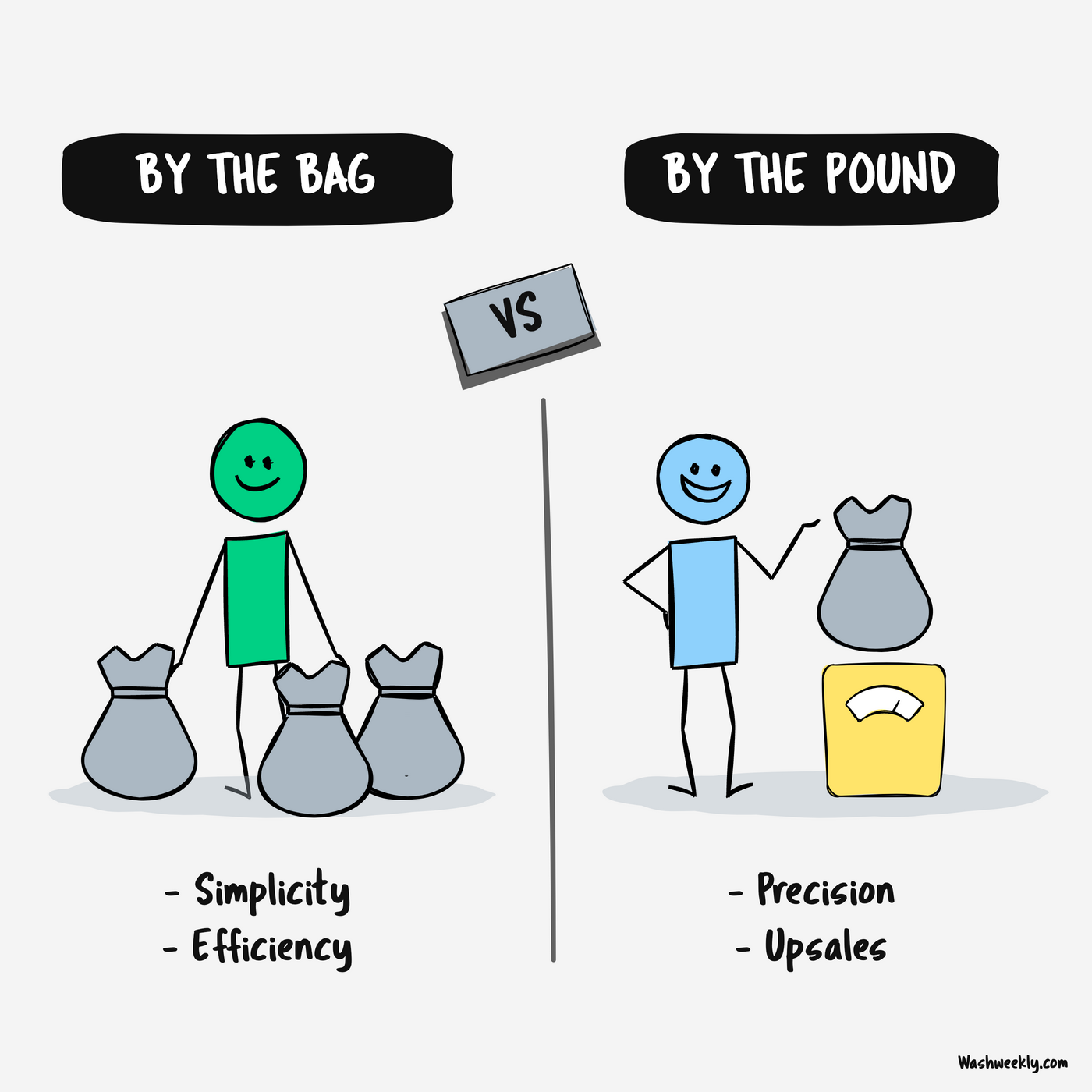Offer Details:
$125 off your registration
Code: WASHWEEKLY
Good Till: June 9, 2024 11:59 pm
Good For: General Admission passes or C-Suite Experience passes
Just enter the code WASHWEEKLY during the registration process on the website here.
Share your product or service in Wash Weekly.
You're faced with many decisions every day, from managing staff to maintaining equipment. But one decision stands out for its impact on your bottom line and client satisfaction:
How to price your services.
In the garment care business for laundry service, this decision often boils down to two options:
- charging by the pound
- charging by the bag
It's a choice that seems simple on the surface, but if you delve a little deeper, you'll find a complex web of factors that can significantly influence your business's success.
When we launched PUD, I was torn between these two pricing strategies. I spent countless hours running numbers, researching competitors, and even surveying clients. It's a challenging decision to make for your business.
So, which pricing strategy is right for your business?
Let's dive into the pros and cons of each to help you make an informed decision.
The Case for Charging by the Pound
Pros:
- Precision. Charges clients only for the laundry they send, ensuring fairness.
- Flexibility. Accommodates clients with different load sizes, catering to a wider client base.
- Upsales. You can charge modifiers by the pound for additional increases with the order size.
- Transparency. Clients can see exactly how their charges are calculated, which can build trust.
Cons:
- Estimation Difficulty. It can be challenging for clients to estimate the price in advance, which can be tricky for those on a tight budget.
- Variable Costs. The cost for the client can vary significantly from one order to another.
- Complexity. It requires a reliable system for weighing laundry and calculating costs, which can complicate operations.
- Time-Consuming. Weighing each order can add extra time to the process, potentially slowing down service.

The Case for Charging by the Bag
Pros:
- Simplicity. It's easy for clients to understand the pricing structure, reducing confusion.
- Predictability. Clients know what it will cost upfront, which can be reassuring for those on a budget.
- Profitability. You can profit more on bags that aren't completely filled, improving your bottom line.
- Efficiency. It can be quicker to process orders without having to weigh each one.
Cons:
- Limited Precision. It does not accurately reflect the weight of the laundry, leading to potential overcharging or undercharging.
- Less Flexibility. Clients might add more to the bag to get more than they are paying for, which can lead to revenue loss.
- Inconsistency. Clients might not always place their laundry in the same bag, leading to challenges in handling different sizes of bags sent in by the client.
- Potential for Disputes. If a bag is overstuffed or unusually heavy, it could lead to disputes over pricing.
When choosing a pricing strategy, consider the clients you serve, the average size of orders, your business model, and your competition.
There's nothing wrong with either model. However, I prefer to be a missionary rather than a mercenary in business. Carefully consider your pricing strategy, which can significantly impact your profitability and client satisfaction.
Remember, the right pricing strategy aligns with your business goals and morals and serves your clients best.
Thanks, Tricia for this week's topic.
That's all I got for today.
Waleed
✌️🏴☠️
P.S. If you haven't already check out the Laundry CEO Forum.
Thinking about, the thinking of laundry
From the words of the global management consulting firm, McKinsey & Co
Pricing is by far the biggest tool for earnings improvement.





